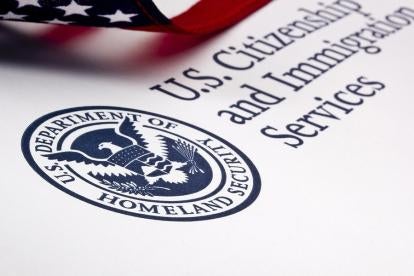On December 15, 2017, the U.S. Department of Homeland Security (DHS) announced that it would implement enhanced security measures for the Visa Waiver Program as part of the administration’s ongoing counterterrorism efforts.
What Is the Visa Waiver Program?
The Visa Waiver Program allows certain citizens of 38 countries to travel to the United States for tourism or business purposes for trips of up to 90 days without the need to obtain visas from U.S. consulates or embassies prior to entry. Visa Waiver Program countries include many European countries, Australia, New Zealand, South Korea, Singapore, and Japan. To be eligible for the Visa Waiver Program, a foreign national from one of the 38 designated countries must meet the following general requirements:
- possess an e-Passport (i.e., an enhanced secure passport with an embedded chip containing the individual’s biographic information);
- have applied for and received advance authorization through DHS’s Electronic System for Travel Authorization(ESTA) prior to travel;
- have not traveled to or been present in Iran, Iraq, Libya, Somalia, Sudan, Syria, or Yemen on or after March 1, 2011 (with limited diplomatic or military exceptions); and
- not be a dual national of a Visa Waiver Program country and Iran, Iraq, Sudan, or Syria.
Approximately 20 million travelers use the Visa Waiver Program to enter the United States each year.
What Are the New Restrictions?
Pursuant to the newly announced restrictions, Visa Waiver Program countries must begin utilizing U.S. counterterrorism information to screen all travelers entering those countries from elsewhere. Airports in eligible countries must also utilize the same U.S. data to screen their own employees as a means of safeguarding the United States against threats by foreign airport workers.
Moreover, DHS will implement additional measures to curb the number of Visa Wavier Program travelers who overstay their maximum-allowed 90-day admission period. Penalties already exist for those individuals who stay in the United States beyond the 90-day visa waiver stay limitation, including a bar on further visa-waiver travel. Under the new restrictions, DHS will force countries with overstay rates of 2 percent or greater to conduct public awareness campaigns to educate their citizens on such penalties, if those countries wish to remain eligible for the Visa Waiver Program. According to DHS data for 2016, only four countries currently meet the 2 percent threshold: Hungary, Greece, Portugal, and San Marino.
No timeline was immediately announced by DHS for the implementation of these new restrictions.





 i
i


